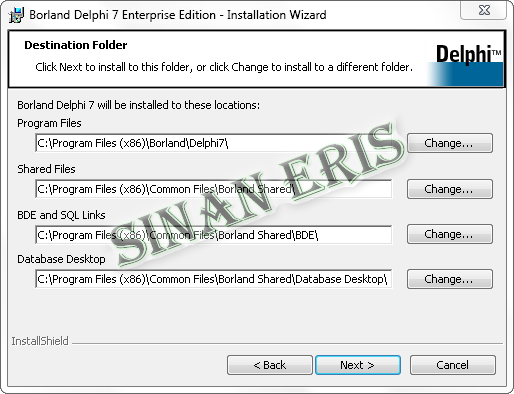Autodesk inventor 2009 full crack virtual dj. • SECTIONS • Search → • • • Customer Service • • • • • Advertise • • • Stay Connected • • • • • • • My Subscription • • • • • News • • • • • • • • • • • • Sports • • • • • • • • • Columnists • • Politics • • • • • Fresno State Bulldogs • • • • Entertainment • • • • • • • • • • • • Blogs & Columnists • • • • Living • • • • • • Blogs & Columnists • • • • • • Business • • • • • • Blogs • • Opinion • • • • • • • • Columnists • • • • • Obituaries • • • • • • Shopping • • • Classifieds • • • • • • • • • • • • Place An Ad • • • • • Jobs • • • • • Homes • • •.
Function GetHDDSerialNumber(NomDriv e:byte): String; const IDENTIFY_BUFFER_SIZE = 512; type TIDERegs = packed record bFeaturesReg: BYTE; // Used for specifying SMART 'commands'. BSectorCountReg: BYTE; // IDE sector count register bSectorNumberReg: BYTE; // IDE sector number register bCylLowReg: BYTE; // IDE low order cylinder value bCylHighReg: BYTE; // IDE high order cylinder value bDriveHeadReg: BYTE; // IDE drive/head register bCommandReg: BYTE; // Actual IDE command.
BReserved: BYTE; // reserved for future use. Must be zero. End; TSendCmdInParams = packed record // Buffer size in bytes cBufferSize: DWORD; // Structure with drive register values. IrDriveRegs: TIDERegs; // Physical drive number to send command to (0,1,2,3).
I wanted to get the serial number assigned by Hard disk manufacturer. The serial number is usually printed in the hard disk. Normally to get the serial number, I have to take out the hard disk. Is it possible to know the hard drive serial number from command prompt or in other way.
BDriveNumber: BYTE; bReserved: Array[0.2] of Byte; dwReserved: Array[0.3] of DWORD; bBuffer: Array[0.0] of Byte; // Input buffer. UlTotalAddressableSectors: DWORD; wSingleWordDMA: Word; wMultiWordDMA: Word; bReserved: Array[0.127] of BYTE; end; PIdSector = ^TIdSector; TDriverStatus = packed record // Error code from driver, or 0 if no error. BDriverError: Byte; // Contents of IDE Error register. Only valid when bDriverError is SMART_IDE_ERROR. BIDEStatus: Byte; bReserved: Array[0.1] of Byte; dwReserved: Array[0.1] of DWORD; end; TSendCmdOutParams = packed record // Size of bBuffer in bytes cBufferSize: DWORD; // Driver status structure. DriverStatus: TDriverStatus; // Buffer of arbitrary length in which to store the data read from the drive.

BBuffer: Array[0.0] of BYTE; end; var hDevice: THandle; cbBytesReturned: DWORD; // ptr: PChar; SCIP: TSendCmdInParams; aIdOutCmd: Array [0.(SizeOf(TSendCmdOutParams)+IDENTIFY_BUFFER_SIZE-1)-1] of Byte; IdOutCmd: TSendCmdOutParams absolute aIdOutCmd; procedure ChangeByteOrder( var Data; Size: Integer ); var ptr: PChar; i: Integer; c: Char; begin ptr:= @Data; for i:= 0 to (Size shr 1)-1 do begin c:= ptr^; ptr^:= (ptr+1)^; (ptr+1)^:= c; Inc(ptr,2); end; end; const IdeDriveNom='. PhysicalDrive'; begin Result:='Error'; // return empty string on error.

It’s surprisingly a non-trivial issue to retrieve the manufacturer’s information from a hard drive. Some people recommend using the API function. The problem is that this is not the serial number printed on the hard drive and assigned by the manufacturer, but is (according to the MSDN documentation): This function returns the volume serial number that the operating system assigns when a hard disk is formatted. To programmatically obtain the hard disk’s serial number that the manufacturer assigns, use the Windows Management Instrumentation (WMI) property SerialNumber.
Notice also that it recommends to use the WMI Win32_Physical Media property “SerialNumber” to obtain the manufacturer’s serial. Interestingly enough,. The reason is that this property is optionally defined by the manufacturer and must be supplied by the hard disk driver. So if we can’t use GetVolumeInformation() and we can’t rely on WMI 100% of the time, what can we do? Well, it involves querying several sources of information on a system directly. It also means we have to care if the drive is SATA, IDE, etc.
Well, the smart folks at, wore an open-source application called DiskId32: DiskId32 is a Win32 console utility for reading the manufacturer’s information from your hard drives. Lykke li wounded rhymes mediafire. It runs under Windows 9X, Win NT, Win 2K and Win XP (Pro/Home).
DiskId32 does not run on plain old DOS and I highly doubt that it works on Windows 3.x. It does NOT require administrator rights for Win NT/2K. I have seen this application recommended on many occasions, although there are that use similar methods. There is an open-source application called DiskID32 that is written in C++. Looking at the source code, it takes many scenarios in mind when attempting to retrieve disk information.
Latest Pages
- Contoh Program Procedure Dan Function Pada Pascal
- Free Download Roblox Cheat Engine Hack Codes 2013 Programs
- Myagkie Igrushki Vyazhem Kryuchkom
- Cara Menggunakan Keygen Corel Video Studio X6 Users
- Better Fps Mod For Minecraft 189 Mac
- Drum Midi Files Metallica
- Contoh Program Kasir Dengan Php Programming Tutorial
- Hohryakov Gf Paradoksi Tyurjmi
- Makehuman 2 0 Updates
- Serial Tendering Advantages And Disadvantages